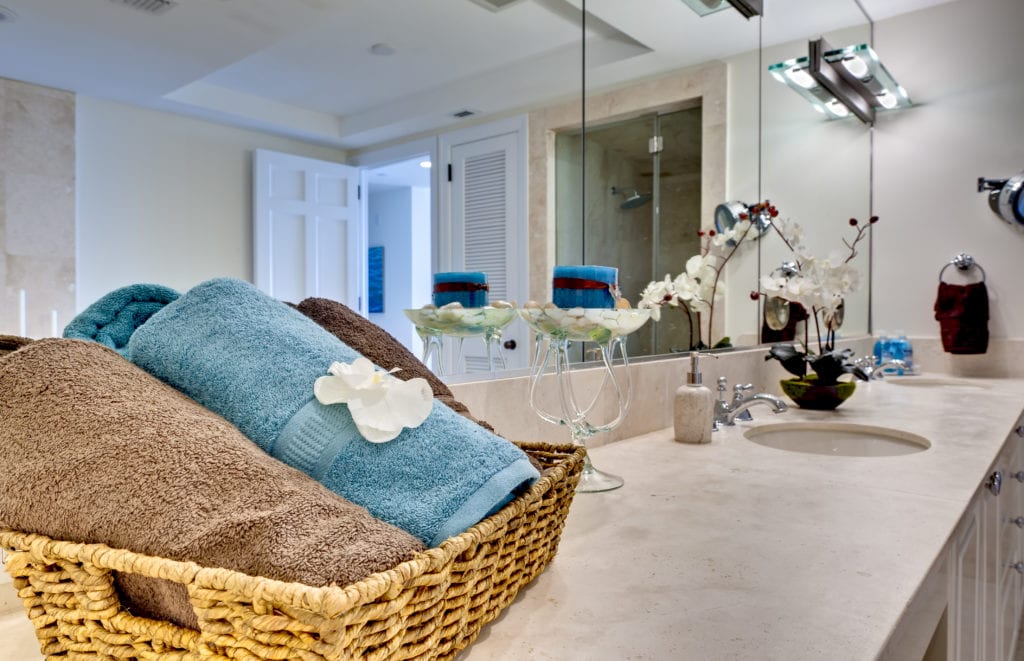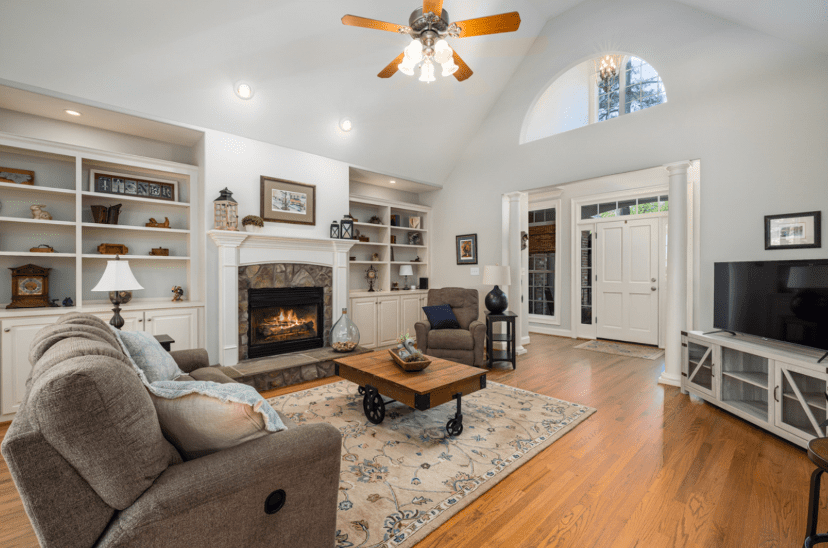
Home staging is the art of preparing your house for sale in a way that highlights its best assets. At first, it might seem like staging involves simply bringing in newer, swankier furniture and taking away items like family photos in favour of more generic décor and design. However, there’s a lot more to it than that. A professional stager works hard to identify and highlight aspects of your home that deserve attention. They also minimize clutter and depersonalize your space so it’s easier for buyers to picture themselves living there. Not everyone has the same style, and the goal of home staging is to create the perfect blank canvas- without actually leaving the entire home empty!
Can I DIY a Home Staging?
Research has shown that staged homes are more appealing to buyers, with 40% of buyers’ agents citing the staging as an element that affects their clients’ view of a property. A whopping 83% said it specifically affected their clients’ ability to visualize themselves living in the home.
While most people choose to hire professional stagers, there are some sellers that would rather tackle this project themselves. These tips are beneficial regardless of which path you choose. Either prep for the staging yourself and hire experts to come in to take care of the final touches, or stick to an entirely DIY strategy.
Here are our recommendations for what you’ll need to do to start your staging.
1. Start by decluttering
If you’re planning on moving, the first thing you should do is start paring down your belongings. The first step in staging is decluttering, and if you’ve been living in one place for a while, chances are you’ve accumulated a lot of clutter.
Decluttering can be exhausting, so break it up into manageable chunks over a period of several weeks. Tackle one area at a time, and don’t get overwhelmed. If you have a lot of clutter that won’t look good in staging or photos but you still want to keep it for your new home, consider getting a storage unit.
2. Remove personal objects
Once you’ve removed clutter, the next step is to take the remaining items in the house and remove any that are personal or representative of a certain style. This means removing family photos, mementos and knick-knacks, as well as décor, furniture items, and accessories that attract attention. The goal is to get your home down to basics.
The items you’re removing in this step might be beautiful works of art, but if they attract too much notice, it takes attention away from the home itself. You don’t have to throw anything out- just store it out of the way. If you’re having a hard time deciding, invite a trusted friend over, or take photos and send them to your realtor.
3. Clean and repair everything
Cleaning is probably the most frustrating and exhausting part of preparing your home for staging. In order to ensure your home looks as fresh and inviting as possible, it should be the cleanest it has ever been. This is a great time to patch any holes, scrub away scuff marks, and make sure every surface is glowing.
4. You don’t have to stage every room
One tip that will help save you from staging exhaustion is that you don’t have to stage every room. The most common areas in a house to stage include the living room, kitchen, master bedroom, and dining room. Some rooms can be omitted, as long as they’re clean, and can be explored easily by potential buyers.
5. Give each room a purpose
Although you don’t have to formally stage every room, it should be clear that each has a purpose. This means that if you have a three or four-bedroom house and have been using your extra rooms as catchall storage, you’ll need to rethink your strategy for staging this space. Set the room up as a bedroom, an office, or a craft room- just don’t leave it full of junk.
Seeing a room overflowing with random household items isn’t just off-putting because of the mess- it can also send a signal to buyers that there isn’t enough storage in your home.
6. Showcase your ingenuity
Many homes, especially those that are older, have awkward areas that require a bit of ingenuity to use effectively. If you’re staging your home, don’t forget to include these spaces. If they aren’t in use already, think of ways that they can be staged. You can create a reading nook, show it off as extra storage, or make it into a creative space for art.
The goal of staging is to do the legwork for buyers, so they don’t have to rack their brain for ways to use these awkward spaces. If it’s too difficult, you increase the likelihood that they’ll just walk away.
7. Remove all evidence of pets
Everyone loves an adorable puppy or a friendly cat, but not when they’re viewing a home. So many people are allergic to animal fur and dander, and many don’t want to live in a home that’s been occupied by an animal, even if they’re the sweetest, most friendly pet on the planet.
As part of the cleaning process, make sure to remove all evidence of your pet, including residual hair, scratch marks, and other pet-related damage. Don’t forget the smell. Many pet owners become accustomed to the smell of their pet, and don’t notice that the animal smell has overwhelmed their home.
8. Clean and simplify outdoors as well
Many potential buyers do a ‘drive-by’ before committing to an in-person visit. They want to check out the neighbourhood, and make sure that they’re invested enough to schedule a tour.
To help boost your home’s curb appeal, make sure to spend some time cleaning and tidying your outdoor space. Shape bushes, plant blooming flowers, and scrub down grungy patio furniture. If you have time, consider power-washing your siding, paving stones, and any other outdoor surfaces that need some tough love. This gives your home an appealing boost and makes it look clean and well cared-for.
Considering Putting a House Up for Sale?
If you’re thinking about the staging process for your home, now would be a great time to get a realtor involved. They can give you advice on the best way to stage, as well as the best time to put your home on the market.
We work with some of the best Windsor real estate agents, and our experts love to help local families looking for their next home. Contact the Dan Gemus Real Estate Team, and let us help you get your staging prep started.

